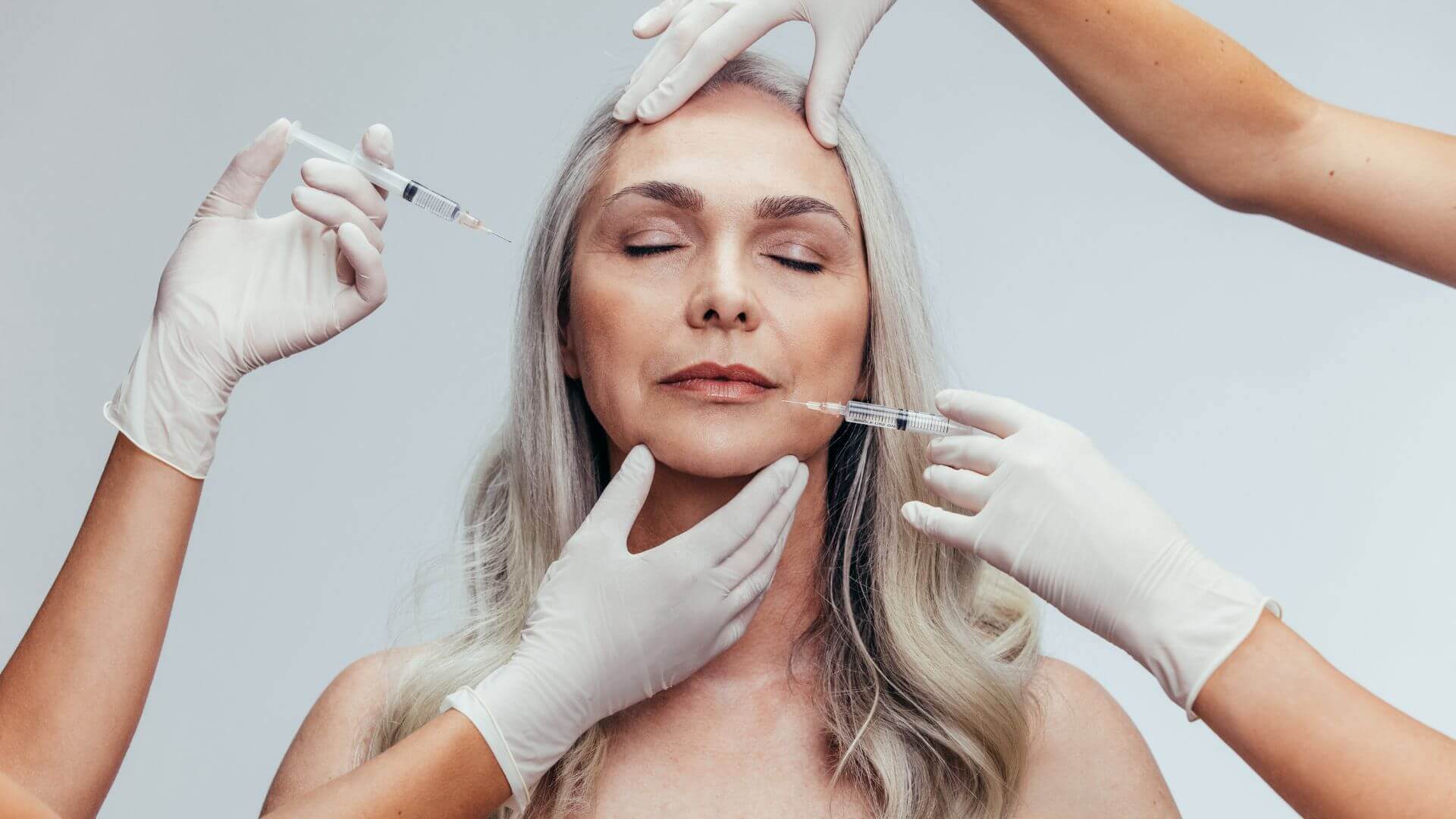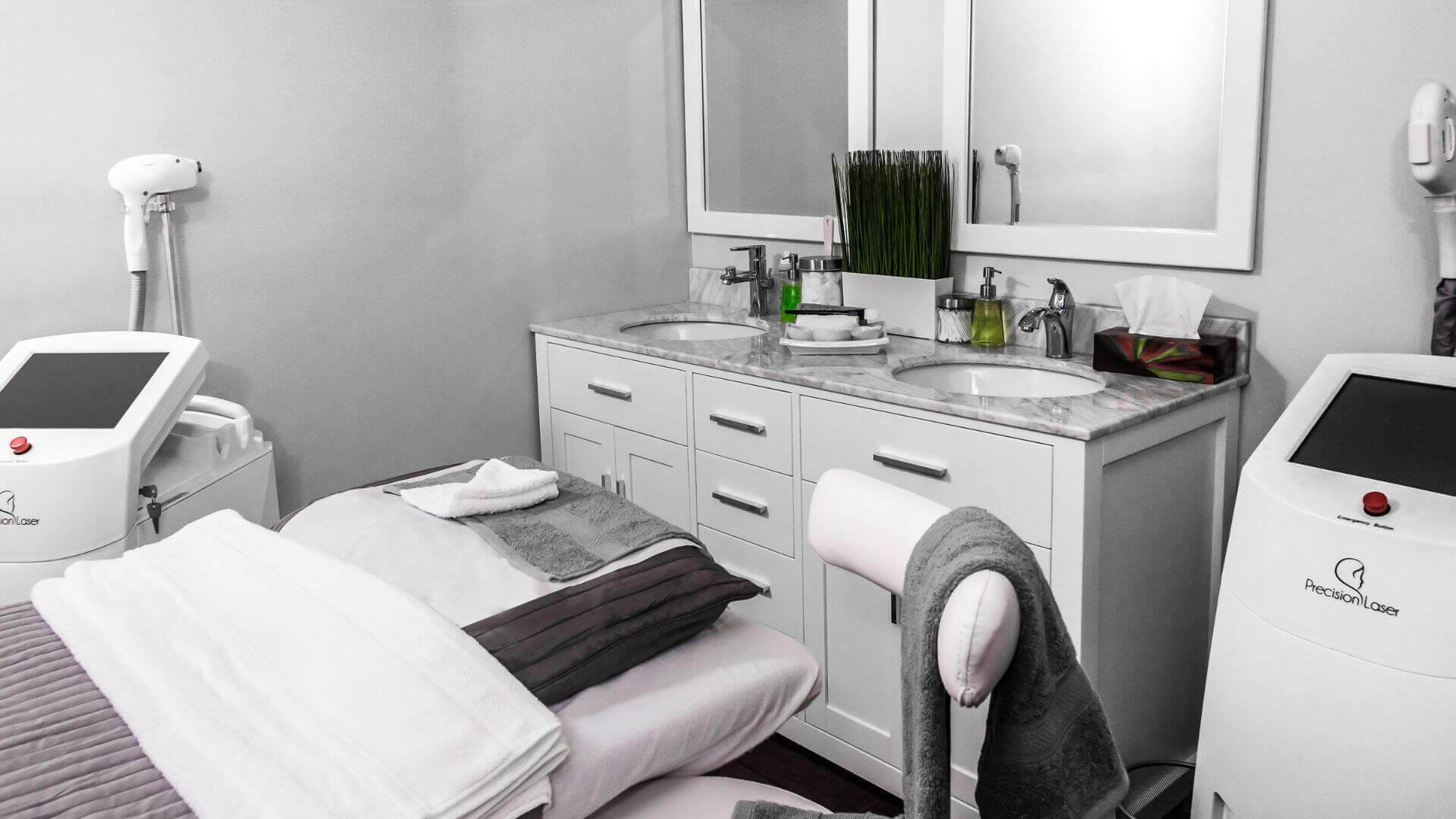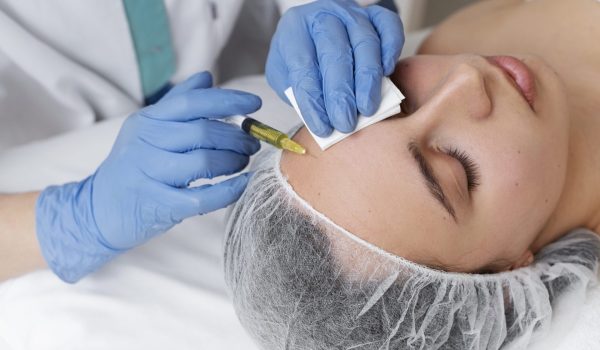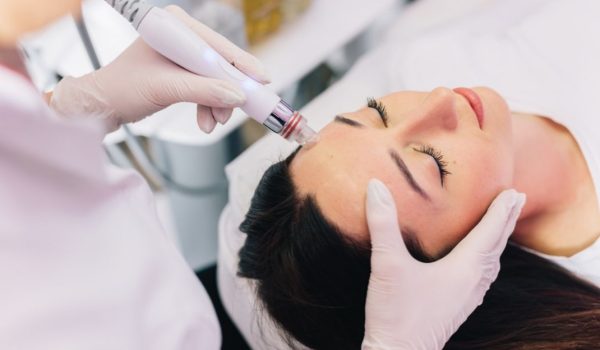How AI is Impacting Medical and Aesthetic Treatments in 2024
-
By: Adam Diwan
-
December 5, 2023
Artificial intelligence (AI) has evolved in recent months with the ability to revolutionise various sectors with unprecedented efficacy. Whilst aesthetic products can support clients in many ways, AI helps through multiple technologies and procedures, meaning medical and aesthetic clinics can benefit from the alterations AI can bring.
This blog explores AI’s pivotal role in enhancing patient care and medical procedures. We discuss the synergy between AI and clinical practice so you can utilise this technology within your clinic.
What is Artificial Intelligence?

AI represents a technological advancement with profound implications for healthcare and aesthetics. It encompasses developing computer systems and algorithms designed to emulate human intelligence and perform tasks that typically require human cognitive capabilities.
In the context of medical and aesthetic clinics, AI can process vast volumes of data and complex information swiftly, facilitating more accurate and informed decision-making.
Fundamentally, AI harnesses data and algorithms to navigate through extensive databases of patient information, medical records, and treatment protocols. Through iterative learning processes, machine learning algorithms, and neural networks, AI systems continuously refine their understanding of clinical scenarios, adapting and evolving their recommendations.
AI is a tool qualified practitioners can use to ultimately enhance patient outcomes and the efficacy of medical and aesthetic treatments. Understanding its principles is the first step toward using AI in the medical field or within your aesthetics clinic.
What Types of Aesthetic and Medical Devices can be used with AI?

There are various AI applications in the medical industry and aesthetic fields, leading to remarkable advancements in clinical technology. Among the various innovations, AI-powered medical devices can enhance aesthetic procedures’ precision, safety, and efficiency.
Various aesthetic clinic tools use AI, including laser machines, micro-needling devices, and cosmetic surgery tools. These systems take advantage of AI’s capabilities to analyse patient data, customise treatment plans, and even automate certain aspects of procedures, ensuring optimal outcomes.
AI’s presence in laser machines can enable real-time adjustments to treatment parameters based on skin type, minimising the risk of adverse effects. In cosmetic surgery, AI assists in surgical planning and execution, further elevating the safety and precision of these interventions.
Personalising Medical and Aesthetic Appointments with AI

Personalised care is possible due to AI-driven recommendation systems that tailor treatment plans to individual needs and preferences.
AI accomplishes personalisation by analysing vast datasets of patient information, medical histories, and aesthetic goals. Through machine learning algorithms, it discerns patterns, identifies optimal treatment regimens, and suggests bespoke approaches for each client. This not only enhances treatment efficacy but also elevates patient satisfaction and outcomes.
However, in using AI’s personalisation abilities, it is crucial to recognise the importance of patient data privacy and ethical considerations. Safeguarding sensitive information and adhering to ethical guidelines remain integral to maintaining trust and integrity within the medical and aesthetic professions.
Remember, when using AI technology in your clinic, you must include it within your aesthetic clinic risk assessment where appropriate to evaluate the risks it may pose to staff and clients.
Understanding how AI can individualise patient experiences while following ethical standards is essential for qualified practitioners to utilise this technology in their clinics and promote patient-centric care.
In-Depth AI Skin Analysis

This technology enables comprehensive skin analysis within medical and aesthetic clinics. Its pivotal role encompasses various benefits, offering practitioners an invaluable tool for precision and insight into patients’ skin conditions.
AI-powered skin analysis allows advanced algorithms to assess many skin attributes, including texture, pigmentation, elasticity, and even early signs of skin conditions. These analyses enable practitioners to formulate tailored treatment plans, optimising patient outcomes and providing them with the correct skincare products.
For example, dermatological diagnostic algorithms can use AI to detect conditions like melanoma or psoriasis at their beginning stages.
Understanding the role of AI in conducting in-depth skin analyses equips medical professionals with the means to provide enhanced care and targeted treatments, elevating the standard of medical and aesthetic procedures in their clinics.
3D Surgery Options

3D surgery options, augmented by AI, revolutionise surgical planning and elevate procedure precision and outcomes.
AI in medical settings is vital in 3D surgery by facilitating advanced imaging and simulation. It assists in mapping patient anatomy, allowing for surgical planning and execution. Surgeons can visualise procedures in three-dimensional detail, anticipate potential complications, and tailor their approaches to individual patient needs.
Moreover, AI-driven 3D surgery options enable real-time adjustments during procedures, enhancing adaptability and responsiveness. This synergy of AI and 3D technology ensures safer, more accurate surgeries with reduced risks and faster recovery times.
Predicted Results after Aesthetic Appointments

AI’s integration into medical and aesthetic clinics extends beyond the procedural phase, offering the capability to predict aesthetic outcomes before treatments commence. This advancement serves a dual purpose, providing practitioners with invaluable insights while managing patient expectations effectively.
This tool utilises algorithms and patient data to generate predictive models of post-treatment results. By simulating potential outcomes, practitioners can discuss realistic expectations with patients, fostering a transparent and informed dialogue. This, in turn, aids in aligning client goals with achievable results.
Furthermore, AI in aesthetic medicine assists practitioners in fine-tuning treatment plans to meet individual preferences, ensuring a customised approach that maximises patient satisfaction. This tool fosters trust and confidence in the treatment process by showing the expected results.
Understanding how AI predicts aesthetic outcomes enables qualified professionals to optimise patient consultations, delivering a higher level of patient-centric care in their clinics.
Efficiency in Aesthetic Clinics

AI can streamline administrative tasks to enhance operational efficiency, resulting in a patient-focused experience.
Its capacity to automate administrative responsibilities, such as appointment scheduling, medical record management, and billing processes, enables clinic staff to lessen their time-consuming and repetitive duties. This reduces the risk of human error and optimises resource allocation, allowing qualified practitioners, nurses, and doctors to provide more time for client care.
Additionally, AI-driven efficiencies extend to patient management by reducing wait times and enhancing the overall workflow within clinics. By optimising appointment scheduling and resource allocation, AI ensures clients receive timely and attentive care, ultimately improving patient satisfaction.
Understanding how AI augments efficiency in aesthetic clinics helps practitioners streamline their operations, minimise administrative burdens, and deliver a more patient-centric experience.
Limitations for AI in Aesthetic Treatments

While AI has made significant strides in the medical and aesthetic fields, it is essential to recognise the challenges and ethical considerations it brings. Acknowledging these issues is crucial for professionals aiming to integrate AI responsibly into their clinics.
While remarkable, AI’s efficacy in the aesthetic industry is not without limitations. These include variations in individual patient responses to treatments, the need for continuous algorithm refinement, and the potential for unexpected outcomes.
Ethical Concerns
The increasing role of AI in decision-making processes prompts ethical inquiries. Questions regarding informed consent, algorithmic bias, and the responsibility of AI practitioners in patient care are paramount.
Ongoing Research and Development
To address these challenges, ongoing research and development focus on refining AI algorithms, enhancing transparency, and establishing ethical guidelines. These efforts aim to ensure that AI integration aligns with the highest patient care and ethical practice standards.
Understanding these complexities allows practitioners to utilise AI’s potential while navigating the ethical and practical considerations in its application within aesthetic clinics.
The integration of AI offers a multitude of reasons to consider adopting this technology into your clinic’s daily practice. The benefits are profound, from enhancing patient care and optimising treatment outcomes to streamlining administrative tasks, enabling you to make the most of AI as you help your clients.
Here at Revolve Medicare, we offer various products to support your patients’ aesthetic needs. Whatever their goal, we can supply everything you need to help them achieve their desired look.
Contact us today and see how we can provide the right treatments for your clients.
Related Posts
-
By: Adam Diwan
-
September 23, 2024
How to Start an Aesthetics Business
-
By: Adam Diwan
-
September 23, 2024
Top 5 Fat-Dissolving Products to Use in Your Clinic
-
By: Adam Diwan
-
July 23, 2024
Top 10 Vitamin Injections for Health and Beauty
-
By: Adam Diwan
-
July 2, 2024
How to Switch from Saxenda to Mounjaro
-
By: Adam Diwan
-
June 25, 2024
Mesotherapy vs Microneedling: A Side Effect Guide
-
By: Adam Diwan
-
June 18, 2024










